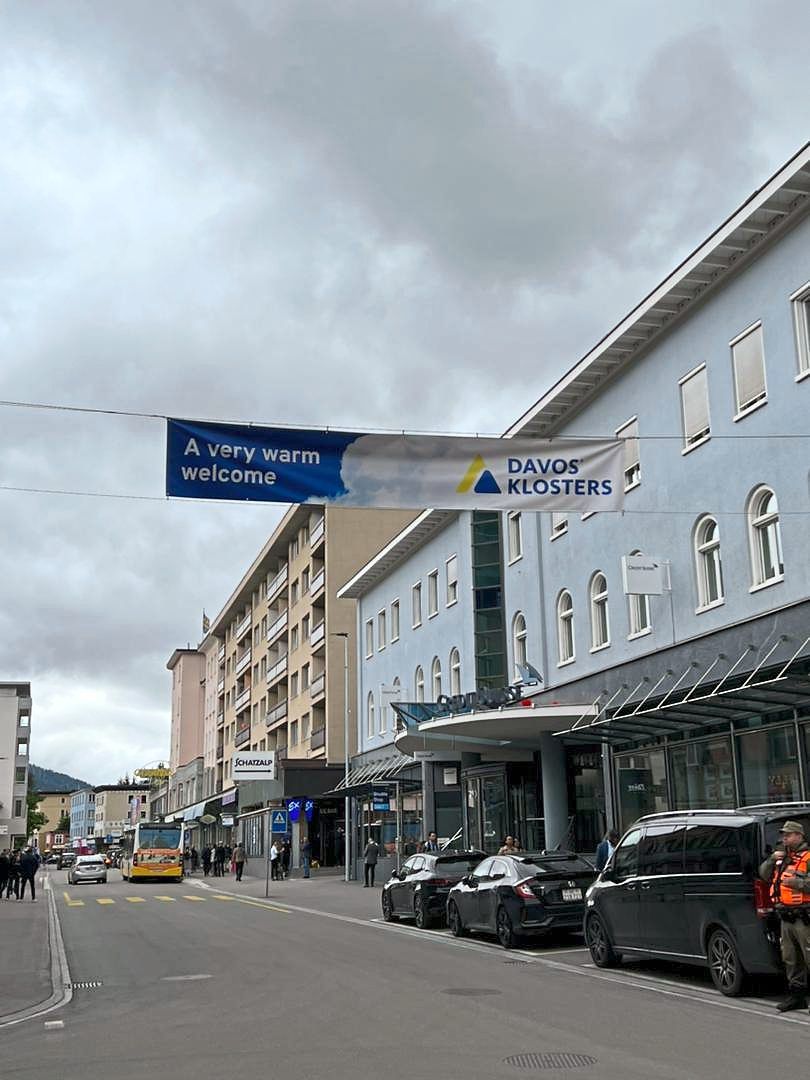May 31, 2022
KUALA LUMPUR – HALFWAY up a mountain and Indonesia Night is in full swing at the World Economic Forum (WEF) in Davos, Switzerland. The room is packed with guests tucking into nasi goreng, kerupuk and ikan pepes.
Papuan dancers decked in neon gyrate to the music and everyone’s in the mood. One senior government official, caught up in the exuberance, mounts the stage while wearing a feathered Papuan headdress and belts out What a Wonderful World.
How times have changed.
When I first attended WEF in 2002, (then hosted in New York as a gesture of solidarity post-9/11), Indonesia’s presence was meagre. The 1998 crash still loomed large and the handful of ministers present hosted empty events. Why would people be interested in a basket case?
Meanwhile, marshalled by Tun Dr Mahathir Mohamad, a phalanx of Malaysian businessmen and officials were taking the conference by storm.
Today, as the Indonesians celebrate, the other South-East Asian delegations seem more subdued, even despondent.
Ultimately, it is a matter of confidence in the country’s leadership.
South-East Asia’s projected economic growth this year is largely solid. And while Indonesia also struggled with Covid-19, its people believe that their government can deal with unexpected crises. While it is far from perfect, it is focused on the future.
This confidence will make all the difference in the coming months and years.
Why?
Well, for all the gilded crowds thronging the Promenade, the WEF’s bacchanal now seems antiquated, if not obsolete. Amid the lavish dinners, Perrier Jouet champagne, corporate pavilions and Bond villain-style chalets, there is a sense that the era of neoliberal globalisation that has brought so much prosperity to South-East Asia is ending.
The Russians (especially the oligarchs) are, unsurprisingly, absent. The “Russia House” building in Davos is now occupied by Ukrainians and renamed the “Russian War Crimes House”.
More tellingly, only a handful of Chinese were present. Covid-19 restrictions have been severe but more chilling still, is the depiction of China as an enemy to be isolated.
Assuming the royal “WE”, the Americans and Europeans have prevailed, and Ukraine dominates all discussions.
“WE” have decided that globalisation must be halted. Essentially, four decades of economic policymaking, free trade, and the entire World Trade Organisation super-structure (since 1995) is to be discarded. In its place comes “resilience”, “friend-shoring”, and “values-driven trade”.
What does all this mean? Well, it’s the idea that “WE” should only do business with our friends — people who share our beliefs. “WE” are democracies, and “THEY” are autocracies.
That the Americans should strike a bellicose tone is not surprising. More startling is the transformation of Ursula von der Leyen, President of the European Commission, from peaceable (and second-rate) German bureaucrat to a veritable Valkyrie, striding on stage to rally the troops with promises of glory.
Perhaps this is also unsurprising: war is very much a part of the European DNA. Remember World War I and World War II? The Napoleonic Wars?
Sadly the “WE” aren’t too interested in what “we”, i.e. the REST, think or want. If the REST push back, we’re deemed as co-conspirators and enemies.
They have tried some outreach; witness the paper-thin Indo-Pacific Economic Framework (IPEF). What they really want is for us to shut up, get into line and then re-arm – buying their vastly expensive armaments.
All sane people want the invasion of Ukraine ended, with its independence, territorial integrity, and democracy intact.
However, with their rivals excluded, Americans and Europeans are once again conflating the West (“the WE”) with the REST. How can it be a “World” Economic Forum when the concerns of Asia, which will contribute 60% of global growth by 2030, are disregarded?
The West may in fact be preparing to decouple.
US Commerce Secretary Gina Raimondo has recently urged Congress to incentivise American semiconductor manufacturing, warning that its reliance on Taiwan (whose future remains a massive question mark), which supplies as much as 70% of its sophisticated computer chips, was untenable. Instead, America must make its own.
Whether a liberal White House will truly embrace isolationism is debatable. But what ought to be clear is that even America may not be a reliable customer or trade partner for Asia, as regional, rather than global supply chains become the norm thanks to industrial polices in Europe and the US aimed at securing control of vital technologies.
The need for South-East Asia to “speak out” and “look out for its own interests” are more urgent than before.
And here, confidence, good leadership, and efficacy will make all the difference.
No wonder the Indonesians at Davos seem so exuberant.
Karim Raslan is an acclaimed South-East Asian commentator and columnist. His column Ceritalah discusses sociopolitical developments and current issues in the region. The views expressed here are solely his own.

The Indonesia Pavilion in Davos.

The Russian War Crimes House, formerly known as the Russian House.

A sign explaining the Russian War Crimes Houses’s renaming and the mood in Davos.

A sign welcoming World Economic Forum participants to Davos.


